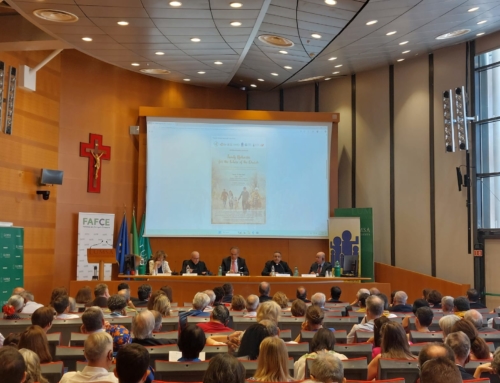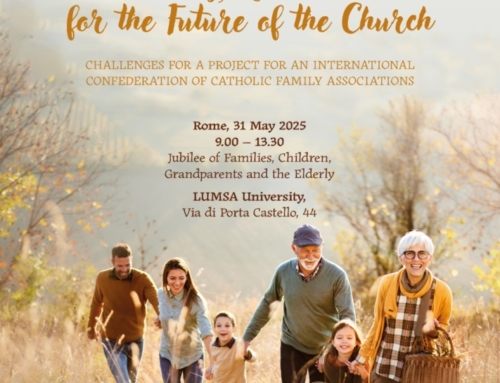Brussels, 15th March 2024
FAFCE welcomes the resolution on the creation of a European initiative for an annual designation of European Capitals of Children. The resolution was passed by the European Parliament yesterday. The resolution highlights the following:
- Children’s rights are human rights
- There is a right to live on a clean and healthy planet
- All children have the right to protection from poverty and social exclusion
- All families and communities must be provided with the necessary support so that they can ensure their children’s well-being and development
- Particular attention must be paid to children with fewer opportunities and the most vulnerable groups
- Intends that the European Capitals of Children to contribute to the fight against child poverty
- Commits to taking into account children’s best interests in the digital transformation
Vincenzo Bassi, President of FAFCE, says: “This is a positive resolution that recognises a crucial reality: children are the future. If we are to have a sustainable future, we must promote intergenerational solidarity. Pope Francis reminds us that we are facing three fundamental transitions: ecological, digital and demographic. In responding to all of these, our families and our children must be at the centre.”
FAFCE has published a resolution on Young People and Mental Health, which stresses that families are the children’s greatest allies. It calls for European institutions and EU member states to:
- Develop a human-centred approach to mental health, focusing on the human dignity of each child, youth and their families, recognising the role of families and informal care.
- Promote a culture of life, solidarity and community, that can help the youth in fostering trust in the future, while coping with economic, social and cultural obstacles.
- Recognise the valuable work and support of grandparents in the everyday well-being of children and youth, taking care responsibilities, and transmitting hope and experience of life to the younger generations
- Undergo an in-depth analysis on the roots of mental health distress on young generations, taking into consideration the impact of digitalisation and demographic change, digital addictive behaviour, cyber violence, sexual abuse, promotion of unclear concepts regarding the so-called “gender self-determination”, no work-family balance, youth unemployment, instability of family relationships and the lack of family members commitment.
- Promote the development of National Action Plans (NAPs) to support families, family networks and associations and schools at the forefront of depression and suicide prevention initiatives, with training on detection and prevention as well as support for those who have lost someone through suicide; include parent and family associations in the development of these policies.
- Recognise digital addictions as a potential source of mental health disorders in children and youth; establish and implement targeted policies to combat the specific impact of digital addictions, drug abuse and addiction.
- Take legislative action against oversexualization of content online and in advertisement, particularly depicting children; coordinate EU Member States to collect all data regarding pornography production and consumption trends by both minors and adults.
- Take into consideration the impact of the well-being of mothers and pregnant women on the mental health of their children, also before birth, and draw attention to particular support in actions taken.
- Consider the role of sports and music activities, especially collective, and children participation as a preventive measure, and support families with difficulties to involve children through school, community or family associations programmes.
- Establish the Sunday as a weekly day of common rest, thus favouring family and social cohesion.
Vincenzo Bassi, President of FAFCE, adds: “It is worth highlighting also that parents hold the primary responsibility for the education of their children. The family, as the basic cell of society, is where we learn how to treat others. Nobody knows the needs of their children more than the parents that birthed them. This extends to the protection of minors online and the fight against pornography, which is a cultural sickness that normalises exploitation and disregards human dignity. We must recognise that every child’s life is invaluable, whether unborn, vulnerable, or in poverty and social exclusion. This is done by empowering family associations and networks who serve the needs of the children and, therefore, the common good.”








